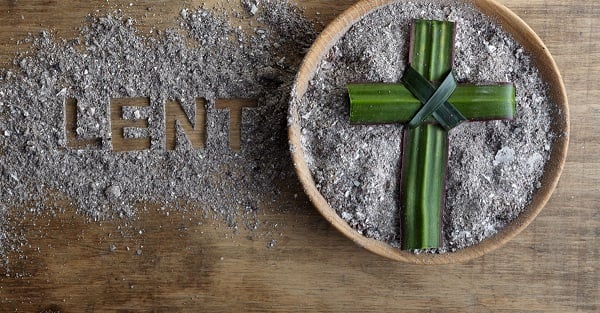
Since the Council of Nicea in AD 325, Christians have observed Lent, which is the 40-day period before Easter. The season of Lent is intended to be an imitation of Jesus fasting in the wilderness for 40 days.
Some people see the Lenten season as drudgery and a kind of self-imposed penance or punishment. But for almost 2,000 years, the Church has seen this season as a time of growth, preparation and joy.
Lent is a Time for Growth.
The term Lent implies the number 40 in Latin based languages, but when translated from the early English it related to the word meaning ‘lengthen.’ Lent occurs as Spring approaches and the daytime hours are lengthening. It is a time for ‘lengthening’ or growing spiritually as we approach the celebration of Christ’s resurrection on Easter.
Lent is a Time for Preparation.
Lent is a time to prepare our hearts for truly feasting and celebrating the resurrection. This is why every Sunday is a feast day during lent. We fast for six days and then feast on the seventh day. This is the same as God’s rhythm for sabbath keeping.
Jesus’ time in the desert quiet place for those 40 days gave time, space, solitude and silence for His Father to sear His identity deep into His soul. As Jesus spends day after day with His Father alone, He gets stronger not weaker.

Jesus was being prepared and strengthened to be able to stand against temptation from the enemy and to move right into ministry.
But did Jesus really need to fast to gain that kind of supernatural strength?
My answer to that question is this: I believe that everything Jesus did had purpose. I think fasting was necessary for Jesus.
As we consider the rhythms of Jesus and attempt to imitate His ways, fasting is one rhythm that we must consider.
Fasting Ushers Us Into the Presence of God.
Fasting (abstaining from food) was commanded by God in the Old Testament for the Day of Atonement. It is a practice that is closely linked with humbling yourself before God and denying yourself. Before Jesus, leaders would call all their people to fast in order to seek God and be focused on prayer.
After Jesus ascended to heaven, the early church sometimes fasted. Jesus spoke of this in Matthew 9:14-15.
14 Then John’s disciples came and asked him, “How is it that we and the Pharisees fast, but your disciples do not fast?”
15 Jesus answered, “How can the guests of the bridegroom mourn while he is with them? The time will come when the bridegroom will be taken from them; then they will fast.
Luke 18:12 refers to the practice of the pharisees having a weekly rhythm of fasting for two days out of every week on Wednesdays and Fridays.
Early church father Irenaus of Lyons (c.130-c.200) wrote that the early church fasted for a few days prior to celebrating Easter every year.
Lent is a Time of Joy.
As I studied the church father’s writing about Lent, I was surprised to see that at its core, Lent is supposed to carry Joy. The first Preface for the Mass in Lent makes the point beautifully:
Each year you give us this joyful season
when we prepare to celebrate the paschal mystery
with mind and heart renewed.
You give us a spirit of loving reverence for you, our Father,
and of willing service to our neighbor.
As we recall the great events that gave us a new life in Christ,
you bring to perfection within us the image of your Son.
While Ash Wednesday is a time of reflection, prayer and seeking God, it is not to be a depressing day. It is a solemn day of starting the fast and remembering our own mortality. Recognizing our own mortality isn’t a downer – it’s a reminder that as Christians our real home is heaven and every year we are closer to being there.
Good Friday is a day of great solemnity and experiencing the grief of our Savior as He dies in our place. We hold services that day to thank Jesus and worship Him for suffering in terrible ways for us.
Denying ourselves and humbling ourselves, while seeking Him and worshiping Him, will transform us.
As we begin the season of Lent this Wednesday, what will you fast?
While you can choose a certain food or drink to fast, I encourage you to pray about what you should give up.
![]()

One year I foolishly chose to fast meat without praying and asking God what He would have me do. By the second week of fasting I was so angry, bitter and frustrated I felt further from God and felt like I had failed. After praying about it, God gently nudged me with the question, “Did I ask you to fast meat?” I realized in that moment that God gives grace for fasting and denying yourself, but in this case, He did not give me the grace for that specific kind of fast. So, after receiving His grace, I simply changed what I was fasting, and the remaining four weeks of Lent drew me closer to Jesus.
Food is not the only thing you can abstain from to fast. You may fast from an activity such as using social media, playing games, watching Netflix, and other forms of entertainment.
Whatever you choose to fast, remember that it is important to replace the time and your attention you would have given to that meal or activity, to prayer and worship.
“We fast because we have tasted and seen the goodness of God and are desperately hungry for more of Him.” - David Mathis
Let’s experience more growth and joy as we allow Him to prepare us to celebrate the resurrection of Jesus in April this year!
Please join us for our Ash Wednesday Service in the Dome as we worship together and prepare our hearts for Lent this Wednesday evening from 6:00 to 7:00 pm.
I look forward to seeing you at our Sunday Worship Service in the Dome beginning at 10:00 a.m.
You can also live stream our 10:00 a.m. service on Facebook and YouTube.



